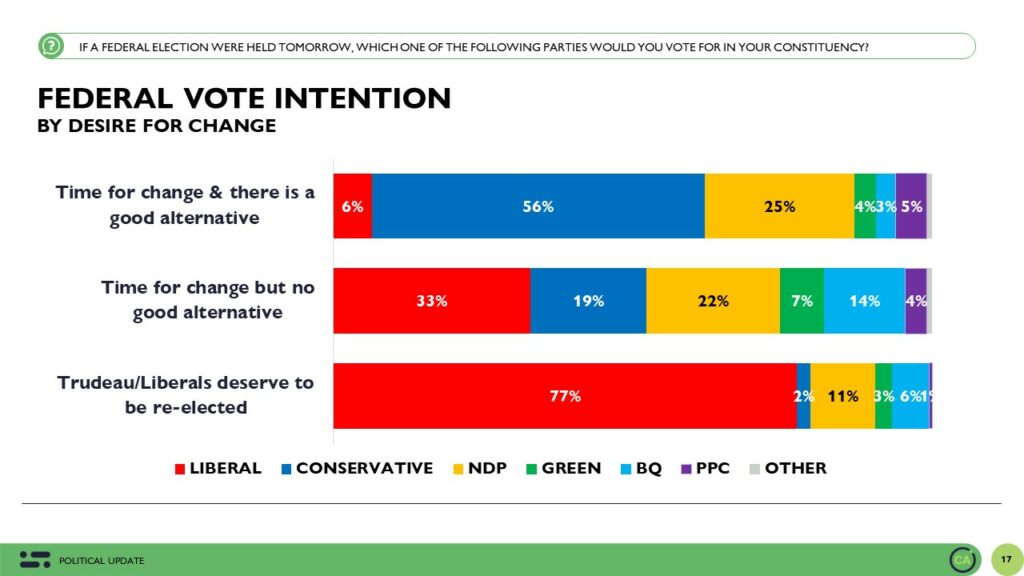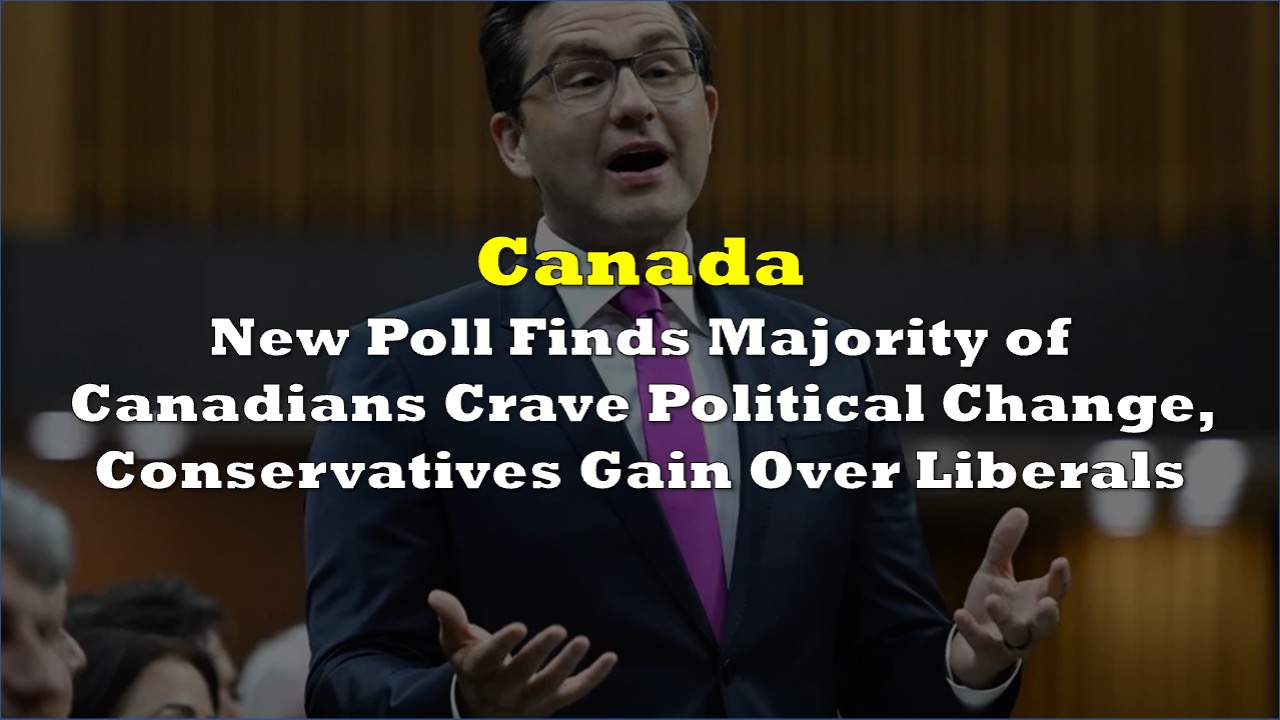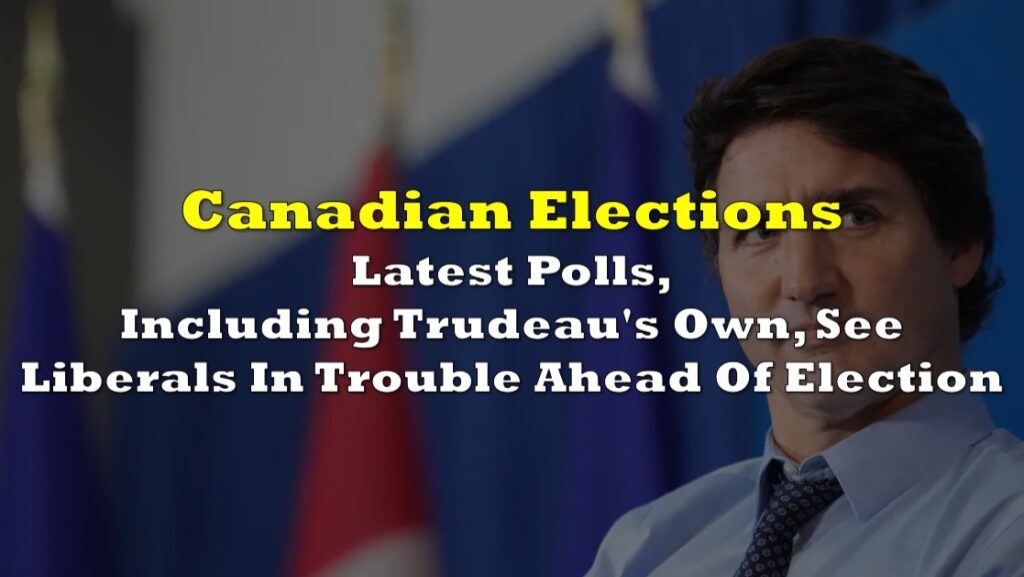Canadian politics is witnessing a widespread desire for change, according to a recent survey conducted by Abacus Data. The survey, conducted from June 6 to 11, 2023, interviewed 2,000 adults across Canada, with an oversampling of Ontario.
The survey aimed to understand both the desire for change and the level of comfort with available alternatives. A significant 81% of Canadians expressed the belief that it is time for a change in government. However, within this group, 31% felt uneasy about the alternatives to the ruling Liberals.
There's a broad desire for change in #cdnpoli but many aren't sure there's an acceptable alternative.
— David Coletto (@DavidColetto) June 12, 2023
To me, this is the BIG factor leading up to the next election.
I asked a slightly different question on our latest national @abacusdataca survey that finished yesterday.
Here… pic.twitter.com/XcmEf8LdW5
Further analysis of this subset of respondents revealed that women were slightly more likely than men (55% to 45%) to express discomfort with the available alternatives. It was found that 45% of them had voted for the Liberal Party in the previous 2021 elections, while 21% had voted for the New Democratic Party (NDP) and 13% for the Conservative Party. In terms of political ideology, 50% identified as centrists, 36% leaned left, and 14% leaned right.

Interestingly, those who desired change and felt comfortable with an alternative leaned towards the Conservative Party (56%), followed by the NDP (25%) and the Liberals (6%). Conversely, among those who believed the Liberals deserved to be re-elected, 77% would vote Liberal, 11% NDP, and a mere 2% Conservative.
Abacus Data CEO David Coletto notes that the group that desires change but lacks comfort with the alternatives may hold the key to the next election. “And right now, enough of them are staying with the Liberals giving them a shot at re-election. If any of the opposition parties can make themselves more appealing, that becomes a dangerous place for the Liberals,” he wrote.
Currently, a significant portion of this group remains aligned with the Liberals, potentially granting them a chance at re-election. However, if opposition parties can enhance their appeal, the Liberals’ position becomes precarious.
“Poilievre may be super popular and motivating for Conservatives, but he hasn’t yet convinced people that he’s a safe alternative to the prime minister — a prime minister that most Canadians think shouldn’t be prime minister much longer,” Coletto told the Toronto Star.
In terms of current voting intentions, if an election were held today, the Conservatives would secure 35% of the vote (a 2% increase since mid-May), while the Liberals would receive 28% (a 2% decrease). The NDP would garner 21% (a 3% increase), and the Bloc Québécois (BQ) would receive 7% of the vote nationally. Colleto says that this is the lowest Abacus has measured for Liberals since August 2015.
The latest @abacusdataca #cdnpoli poll for the @TorontoStar
— David Coletto (@DavidColetto) June 14, 2023
🔵 CPC 35
🔴 LPC 28
🟠 NDP 21
This is the lowest vote share we’ve measured for the Liberals since August 2015.
https://t.co/LPyQ1Hatsw
Information for this story was found via Abacus Data, Twitter, The Star, and the sources and companies mentioned. The author has no securities or affiliations related to the organizations discussed. Not a recommendation to buy or sell. Always do additional research and consult a professional before purchasing a security. The author holds no licenses.











